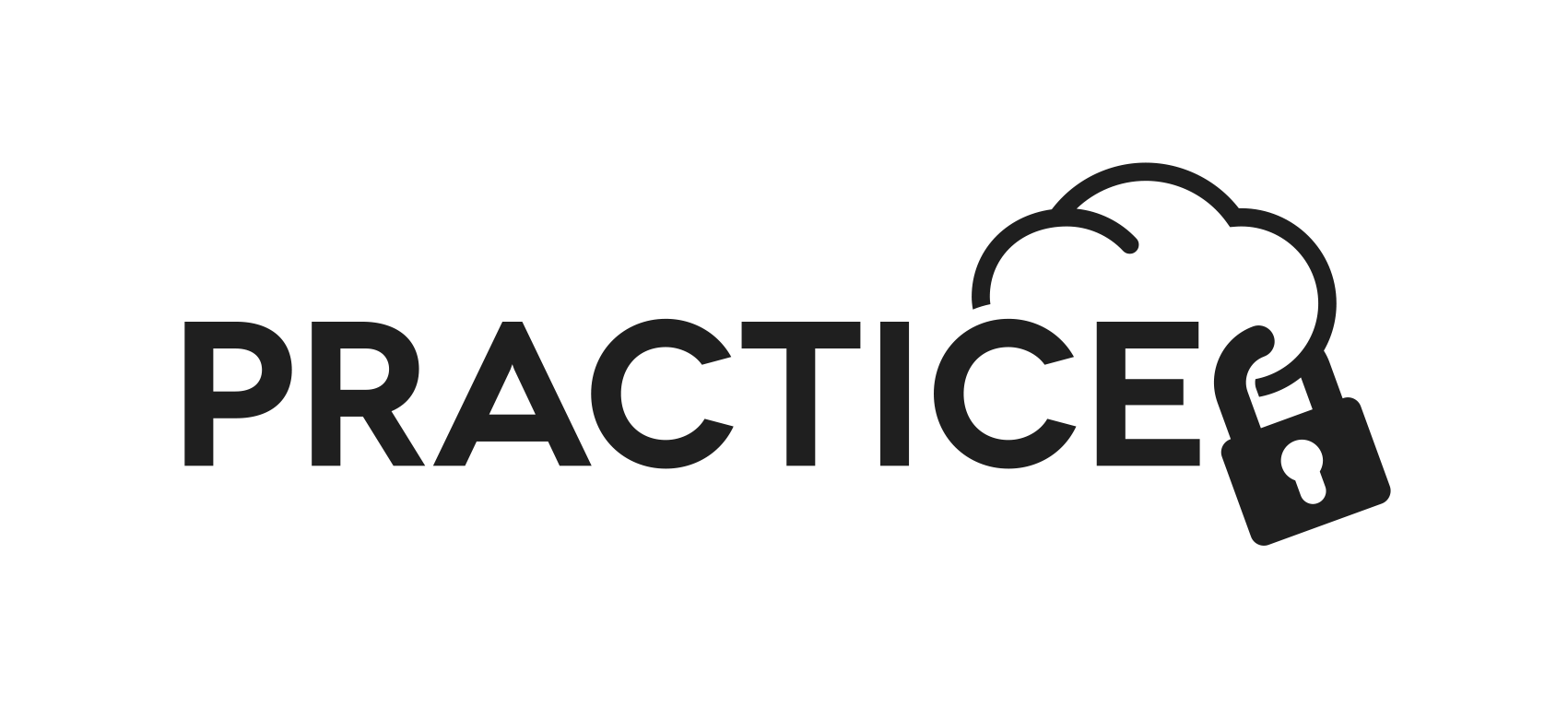Deliverables
Deliverables
Year 3
- PRACTICE Publishable Summary Year 3
The publishable summary
- D13.2 Efficient Verifiability and Precise Specification of Secure Computation Functionalities
This report is the second deliverable of work package WP13 (Protocol Specification and Design) in the PRACTICE project. It describes the results of the activities carried out in Task 13.2, Efficient Verifiability and Precise Specification of Secure Computation Functionalities. The Deliverable is split into parts that correspond to efficient verifiability solutions both relying and not relying in hardware assumptions. The solutions described in the two parts offer different trade-offs in terms of efficiency, trust models and hardware requirements. The precise specification of hardware assumptions is also discussed, and formal methods are applied to the validation of one of the proposed protocols.
- D13.3 The Full Set of New Protocols
This document describes the full set of new secure computation protocols that were designed by the partners of the PRACTICE project. The document has short descriptions of protocols that were already published in deliverable D13.1, and a detailed description of protocols that were designed in the last year of the project.
- D13.4 Prototype Implementations of Key Protocols
This deliverable describes prototype implementations of key secure multi-party computation protocols. In particular, it describes the LibSCPAI software library which is C++ library for secure computation, an extensive set of implementations of oblivious transfer protocols, and a prototype implementation of Valiant’s universal circuit construction.
- D14.3 Protocol Implementations
This report documents implementations of secure computation protocols derived from theoretical work of work package 13. Together, this report and the implementations it documents constitute the deliverable D14.3.
- D14.4 Validation Report
We validate the work on the PRACTICE platform implementations done in WP14. We do this from the point of view of both protocol developers and developers of applications based on secure computation. We address the former by demonstrating how protocols can be implemented and integrated into the platform. The later we do by summarizing a number of real world scenarios in witch the frameworks of PRACTICE have been used to implement secure computation based solutions.
- D21.3 Application architecture for secure computation
This report is the outcome of Task 2.1.3 of the PRACTICE project and describes a general architecture for applications using secure multiparty computation. It extends deliverable D21.2 with general guidelines and already existing example applications, for including both task-specific protocols and generic secure computation in application development.
- D24.5 Prototype assessment
The analysis of real MRO performance and of demand satisfaction in consumer good industry highlights the industrial motivation for collaborative SCM. The prototype application, applied to test case, present suitable functionalities and good performances. The secure cloud SCM system will improve the performance of the whole supply chain.
- D31.3 Evaluation and integration and final report on legal aspects of data protection
This deliverable contains the final report on the current legal framework regulating storage and processing the data on the cloud and complete the description of a methodology to analyze the business risks associated with outsourcing data, supported by a web-based tool.
- D32.3 Final dissemination, standardisation, exploitation and training report
This deliverable reports on the project’s activities in the area of dissemination, standardisation, exploitation and training which have been executed since M25 until the project end in M36 (see D32.1 and D32.2 which reported about the activities for M01-M12 and M13-M24).
Year 2
- PRACTICE Publishable Summary Year 2
The publishable summary is part of D33.3 "2nd periodic report according to EC regulations of the model contract" and provides an overview of the main goals of the PRACTICE project as well as a description of the work performed and results in the second project period.
- D11.2 - An Evaluation of Current Protocols based on Identified Model
This deliverable describes a set of application scenarios for secure multi-party computation, a performance comparison of secure multi-party computation systems written by members of the PRACTICE project, and conclusions based on the results of the performance comparison.
- D12.2 - Adversary, Trust, Communication and System Models
This deliverable summarizes the assumptions on the adversaries, trust, communication and system models for the applications scenarios identified in D12.1.
- D12.3 - Formal Verification Requirements
This report is the third deliverable of work package WP12 (Applications Specifications) in the PRACTICE project. The objective of this report is to document the formal verification requirements that have been identified at M22 by the WP12 team for the highassurance secure computation framework outlined in D22.2. The context and motivation are provided by the application scenarios identified in earlier stages of WP12, and the presentation of the formally verified secure computation framework is framed by the technical and architectural background established by D21.1 and D21.2.
- D13.1 - A Set of New Protocols
This document describes a set of new secure computation protocols that were designed by the partners of the PRACTICE project. These protocols were motivated by the work of deliverable D11.2, which identified shortcomings in the state-of-the-art in secure computation, mostly in terms of the scalability of existing solutions. The new protocols were published in multiple scientific papers at top-tier academic conferences in the field of computer security.
- D14.1 - Architecture
This deliverable describes the architecture for integrating the Secure Computation Technique implementations into DAGGER systems.
- D21.2 - Unified architecture for programmable secure computations
This document describes the general architecture for building and using programmable secure computation systems on the cloud.
- D24.2 - Business Modelling
This deliverable describes new business models for MRO segment of the aeronautic industry and for the consumer goods industry as well as mathematical models and algorithm for collaborative forecasting. Further the planning in the aeronautic MRO process and for implementing Vendor managed inventory business model is described. The deliverable includes also process-related data disclosures events and impact evaluation models.
- D24.3 - Industrial Settings
This deliverable measures the data leakage risks in collaborative SC, introduces the architecture and design strategy of the prototype cloud SCM system and describes the preparation of an assessment framework to evaluate the pilot cases.
- D31.2 - Risk-aware deployment and intermediate report on status of legislative developments in data protection
This deliverable reports an overview of the current legal framework regulating storage and processing the data on the cloud and develops a methodology to analyze the business risks associated with outsourcing data, supported by a web-based tool.
- D32.2 - Intermediate report on dissemination, standardisation, exploitation and training
This deliverable reports on the progress and further plans of the project partner for their dissemination activities, standardisation and exploitation of project results, and project internal/external education and training.
Year 1
- PRACTICE Publishable Summary Year 1
The publishable summary is part of D33.2 "1st periodic report according to EC regulations of the model contract" and provides an overview of the main goals of the PRACTICE project as well as a description of the work performed and results in the first project period.
- D11.1 - A theoretical evaluation of the existing secure computation solutions
The area of secure multi-party computation has experienced considerable progress in recent years, but research results were described in many separate and independent publications. This document summarizes an evaluation of existing state-of-the-art protocols for secure multi-party computation, and highlights the protocols that seem most relevant for actual deployment in the near term.
- D12.1 - Application scenarios and their requirements
Application scenarios that can greatly benefit from secure computation technology are identified. Moreover, their requirements, the participating parties and attacker models are described.
- D22.1 - State-of-the-art analysis
This deliverable gives a survey of techniques and tools which might be contributing to realize privacy preserving computations in the cloud.
- D24.1 - Business and security requirements
Supply chain processes optimization requires collaborative planning systems to be used by many partners. Cloud IT systems could enable collaboration in wide and global supply chains (i.e. aerospace and consumer goods). By analysing current planning procedures, innovative functionalities and the related security requirements for a collaborative cloud planning system are proposed.
- D31.1 - Risk assessment and current legal status on data protection
This deliverable reports on the current legal framework regulating the storage and processing the data on the cloud and introduces a risk assessment methodology to analyze the business risks associated with outsourcing data.
- D32.1 - Updated plan and initial report on dissemination, standardisation, exploitation and training
This deliverable reports on the progress and further plans of the project partner for their dissemination activities, standardisation and exploitation of project results, and project internal/external education and training.
- D33.1 - Project website and internal and external IT communication infrastructure
This deliverable briefly describes the website and its functionality. Further it describes the tools provided within the IT infrastructure to facilitate cooperation and coordination.


